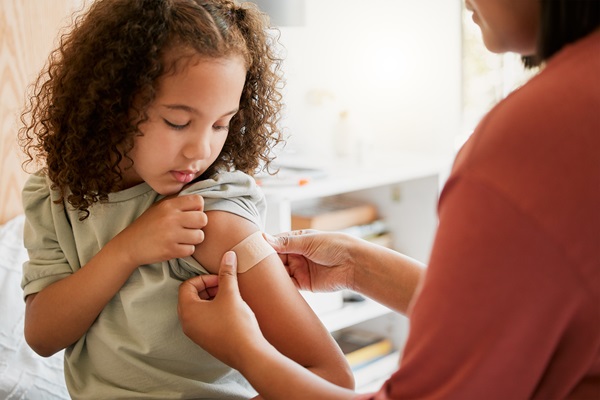Child Immunizations: What Parents Should Know

We have all heard how important child immunizations are, but watching their child getting a shot can be difficult for many parents. The fact that parents might also have concerns about how safe the vaccine is or if it is even necessary at all makes it even harder. There are countless stories all over the internet about how some vaccines can lead to serious health issues.
When it comes to clarifying whether certain vaccines are safe, the first person parents should consult is their child's pediatrician. In the United States, healthcare professionals are legally bound to provide parents with written information about the risks and benefits of any vaccine recommended for a child. They are legally liable for anything written on this document and it is the best way for parents to get factual information about child immunizations. Parents can also contact the Centers for Disease Control and Prevention for more information about any vaccine that has been recommended for their child.
Why child immunizations are safe
Every single vaccine is rigorously tested before it is approved by the FDA. Vaccines work by infusing dead or weakened forms of the bacteria or virus that causes the disease the child is being immunized against. As a result, the child's immune system produces antibodies that protect them for the disease over a length of time.
While diseases like tuberculosis and polio have been virtually eradicated in most developed countries, the same cannot be said about the less developed parts of the world. Given how interconnected the world is nowadays, any of these diseases can easily reemerge.
Do vaccines have negative side effects that can cause illness or even death?
It is possible for a child to experience some negative side effects after getting a vaccine, but that is mostly limited to a slight fever or inflammation at the site of the injection. The risk of a child having serious negative effects or dying from an immunization is extremely rare.
Certainly, there have been rumors claiming vaccines that contain thimerosal, an antiseptic and antifungal agent, increase the risk of a child developing autism, but these claims have been thoroughly researched and the results prove they simply are not true. For example, vaccines that contain thimerosal have been banned in Sweden, yet the number of children with autism there continues to rise. Those types of vaccines are also rarely used in the U.S. as well, yet the number of children with autism continues to rise.
Is it safe to give children multiple vaccines at the same time?
Some parents often wonder about the safety of overloading a child's immune system with multiple vaccines. There have been many studies done regarding this question and the conclusion is that getting multiple vaccines at once does not cause any problems. The tiny amount of viruses and bacteria in vaccines are not enough to overwhelm a child's immune system. What can be harmful is unnecessarily delaying immunizations, since the child's body will usually not be able to handle the bacteria or viruses that cause the diseases they are being vaccinated against if they are ever exposed to it.
Bottom line
If you are thinking about getting your child vaccinated, talk to one of our health care providers about the benefits and risks of each vaccine.
Request an appointment here: https://www.tkzpediatrics.com or call TKZ Pediatrics at (225) 420-1549 for an appointment in our Zachary office.
Check out what others are saying about our services on Yelp: Child Immunizations in Zachary, LA.
Related Posts
When parents seek ADHD treatment, they often turn to a pediatrician for guidance. Pediatricians play a critical role in diagnosing, managing, and coordinating care for children with Attention-Deficit/Hyperactivity Disorder (ADHD). They ensure children receive the care they need to thrive by providing evaluations, treatment options, and ongoing support.Early identification of ADHD is essential for effective…
Pediatric preventive care is central to helping children build a foundation for lifelong health and well-being. Through screenings, vaccinations, and assessments, a pediatrician helps identify potential health issues before they become significant, supporting children's growth, development, and overall health. By understanding what preventive care entails and how it can benefit children, parents can help their…
Choosing the right children's doctor is a critical decision for any parent, as the doctor will play a vital role in their child's health, growth, and development. A knowledgeable and compassionate doctor can make a significant difference in a child’s well-being by providing care that addresses both physical and emotional needs. Asking the right questions…
Bringing a newborn into the world is a life-changing experience, especially for first-time parents. However, it can also be scary. With the right newborn care routine, caring for a newborn and ensuring their comfort and safety will gradually become second nature. This guide provides the tips first-time parents need to feel confident in their newborn…
